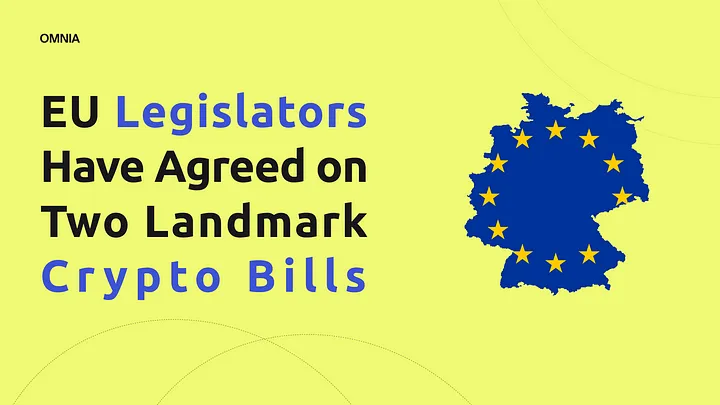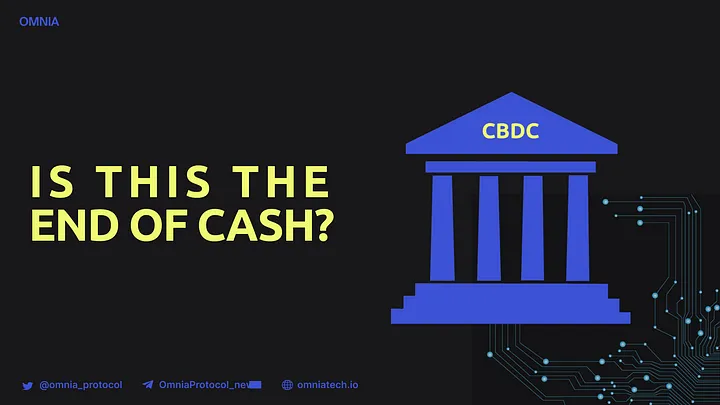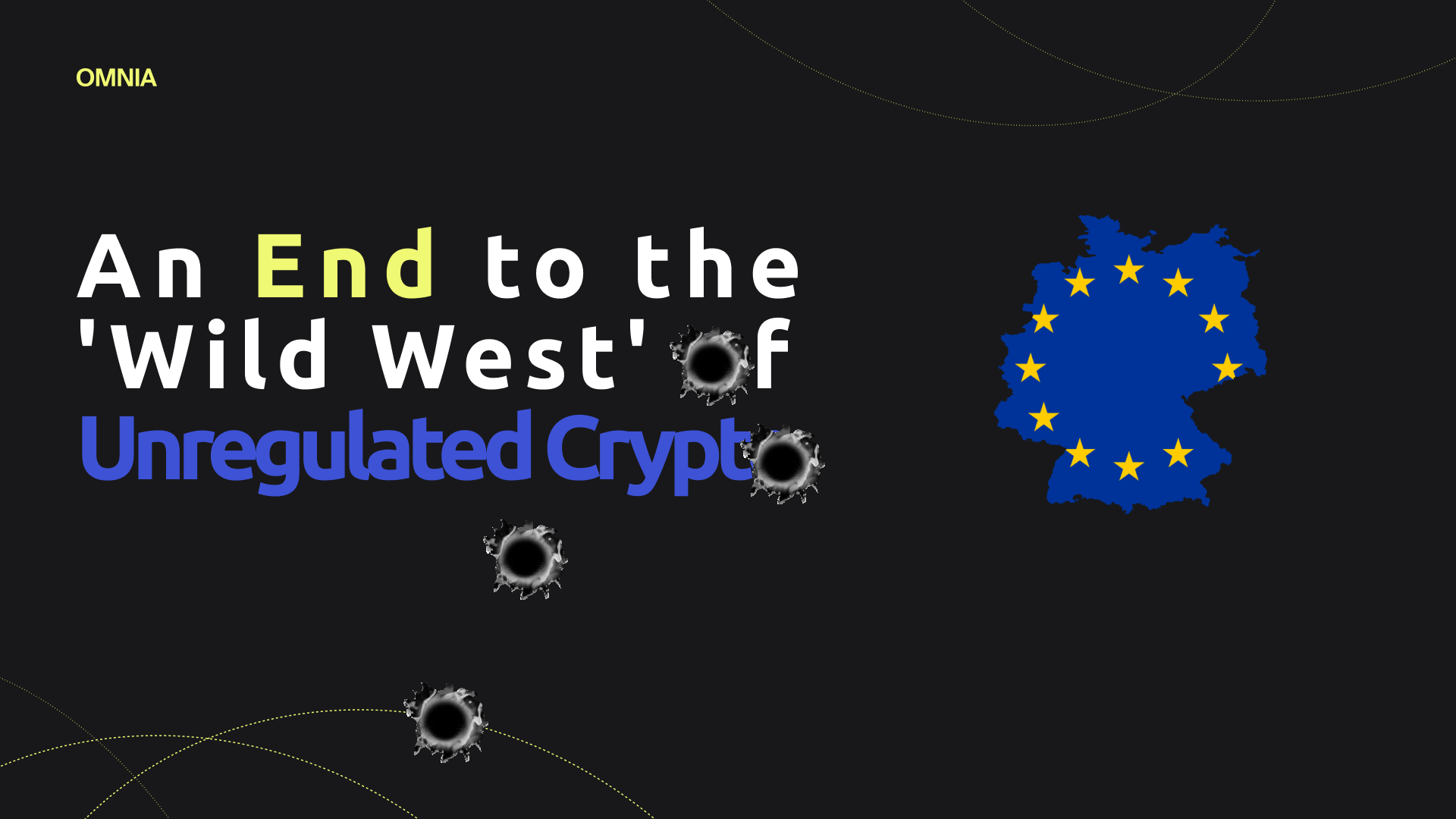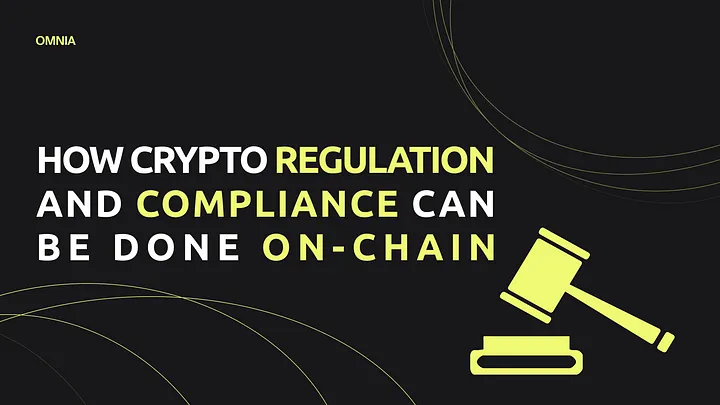
EU Legislators Have Agreed on Two Landmark Crypto Bills. Here is What We Know So Far.
Yesterday, June 30th, was a significant day for crypto as EU legislators belonging to its three governing bodies sat down to finalize the fine details of two proposed bills that would regulate the crypto industry within the region: the Markets in Crypto Assets (MiCA) bill and the Transfer of Funds Regulation (TFR) bills.
At the time of writing, details of the agreed-upon regulations have begun to emerge. However, the final documents of each bill are yet to be made public for proper analysis and evaluation.
EU Reaches Provision Agreement on the Markets in Crypto Assets (MiCA) Bill.
In an announcement late yesterday, the European Parliament notified the public that a deal had been struck with the EU council regarding the legal framework of the MiCA bill.
The EU parliament provided the following agreed-upon measures contained within it.
- A unified legal framework for the issuance and trading of crypto assets.
- Guidelines on the transparency, authorization, and supervision of crypto transactions.
- Provisions for informing crypto market participants on the risks, costs, and charges of trading on the various platforms.
- Regulation of public offers of crypto assets.
- Measures to prevent market manipulation, money laundering, terrorist financing, and other crypto activities.
Concerning NFTs, negotiators of the MiCA bill decided to leave them out of its scope since they believed existing financial services regulations did not regulate them. As a result, the European Securities and Markets Authority has been tasked with providing guidelines on NFTs. A special report on NFTs will also be published in due time.
The Decentralized Finance industry was also not mentioned in the notice by the EU parliament. But it is highly likely that truly decentralized platforms are not within the scope of the MiCA bill. The EU Commission will publish a report on potential DeFi regulation in 2023.
Regarding the environmental impact of crypto mining activities within the EU, Proof-of-work networks such as Bitcoin were left out of the MiCA bill. But crypto asset service providers will, in the future, be tasked with disclosing information on the sustainability of the crypto-assets linked to their services.
As for stablecoins, the exact details of their regulation within the EU remain subject to speculation without a final public document. Patrick Hansen, a Crypto Venture Advisor at Presight Capital, anticipates that stablecoins will most likely have issuance caps with the European Banking Authority overseeing the major stablecoin projects. Stablecoin issuers will also need a presence in the EU, with their reserves having necessary protections against insolvency.
The EU Deal on the Transfer of Funds (TFR) Bill.
On the second bill, the EU parliament also issued a press release yesterday, notifying the public that they had made significant progress regarding rules governing the transfers of crypto assets such as Bitcoin and other tokens.
The TFR bill extends traditional finance’s existing ‘travel rule’ to cover crypto assets. It will require information on the source of crypto assets being sent, its beneficiary travels with the transaction, and is stored on both sides of the transfer.
Consequently, crypto service providers such as crypto exchanges will have to provide this information to authorities in the event of money laundering and terrorist financing investigations.
Regarding personal data protection, the EU legislators agreed that such data should not be sent with transactions as there was no guarantee that privacy would be implemented on the receiving end.
In addition, before beneficiaries receive their crypto-assets, service providers will have to verify the source of the assets and figure out whether it is not from a sanctioned entity or being used for money laundering or terrorist financing.
On the issue of un-hosted wallets, the TFR bill will only cover such transactions when they interact with hosted wallets managed by Crypto Asset Service Providers such as crypto exchanges. As a result, peer-to-peer transactions between unhosted wallets are exempt from the TFR bill.
OMNIA Will Update On Both Bills As More Information is Made Available.
As earlier mentioned, the fine details and final documentation of the agreed-upon bills are yet to be made available to the public. The OMNIA team will update as information is made available.


